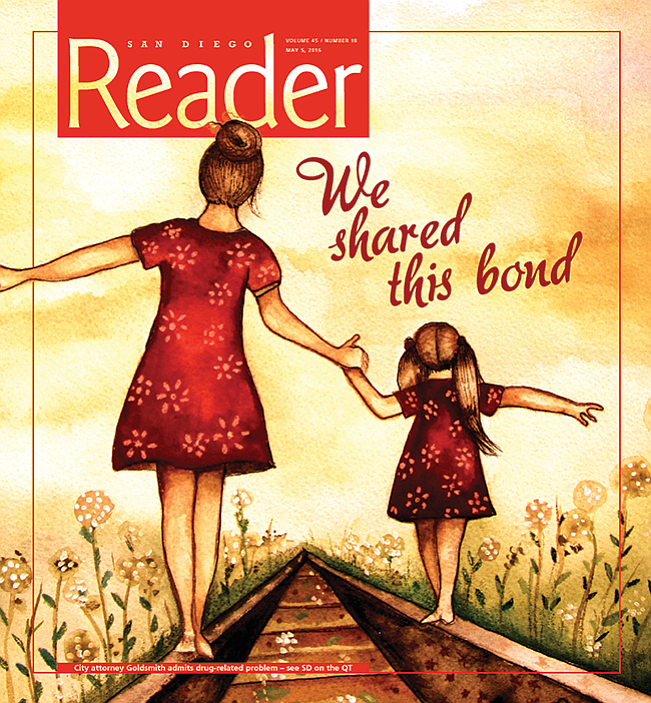Dr. Perper Contributes to the Cover Story in the San Diego Reader!
By: Rochelle Perper, Ph.D. | May 20, 2016

The cover story of the San Diego Reader, titled We Shared this Bond discusses the importance of group support for children who have lost a mother. The article features a San Diego-based program, Chula’s Mission. Chula’s Mission was founded in 2010 by Lyndsey Ruiz after the loss of her mother to cancer. Upon realizing the void left by the absence of a mother, Lyndsey knew she wanted to start a non-profit organization whose purpose is to nurture and mentor motherless girls. In the article, Dr. Perper provides insight into the experience of children following the loss of a parent, and how caregivers can help support children during this time of loss and change.
To read the full cover article in the San Diego Reader magazine, We Shared this Bond, please click here.
The following information is for adults who are involved in a child’s care to help them understand more about the grieving process for children, and how they can help.
The Grieving Experience
Like adults, children will experience a myriad of difficult emotions following a loss, including sadness, fear, anxiety, relief and anger. For most children, these emotions rise in fits and spurts, sometimes occurring around things that are not related to the loss. This type of displaced grief is typical for children and part of the grieving process. It is likely that the child will have many questions about the loss. Depending on the child’s age, these questions can be asked repeatedly as the child struggles to grasp the complexity of death and dying.
What Children Need
After a death, many children want to share their story, and telling their story can be a healing experience. One of the best ways a caregiver can support a child is to listen to their stories. Spending quiet, alone time with children following a loss is important, even if they don’t want to talk about the death.
Children also need continuity and are likely to benefit from environments, people and activities that are familiar to them. Creating opportunities for children to have meaningful connections with others that they know and trust can be very helpful.
Specifically, children need:
- Support from teachers and the school
- Plenty of hugs and cuddles
- Adequate information about the death
- Honesty (provided in an age appropriate way)
- Careful listening
- Reassurance that they are not to blame
- Acknowledgement and acceptance of their feelings
- Opportunities to honor and remember the person who has died
When to seek additional support
The death of a parent can shake the foundations of a child’s belief in the world as a safe place. Children who are grieving need plenty of reassurance and encouragement to begin to feel safe again. Some children may worry about getting sick or dying themselves, or worry about the surviving parent or other adults in their life dying, also. You can help your child feel safe again by answering the tough questions as honestly and as best as you can, while offering reassurance that the child will always be taken care of. In situations where a child does not appear to be able to calm him or herself down, or whose behavior worsens to the extent that it not manageable, or has excessive worry about things that he or she cannot control, additional support from a professional may be necessary. Many children benefit from a safe place to express his or her grief, and learn strategies to cope with difficult emotions. Your child’s therapist can also provide continuity in a families’ life during times of change, and serve a guide for a parent or guardian who is trying to navigate through times of great pain and uncertainty.
As hard as it may be to believe, there is hope after loss. Losing a loved one can feel like being plunged into darkness. Finding your way out of that darkness is no simple task, but it is made easier with the right kind of support. It is possible to rebuild and find a sense of purpose and meaning in life again.
Image by Claudia Tremblay



